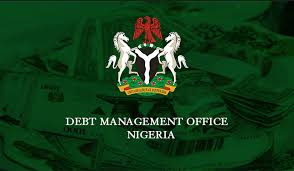The Debt Management Office (DMO) on Tuesday disclosed that the Federal Government had sourced about N410 billion funding from the domestic financial market to finance the 2018 capital budget.
According to the agency, out of the borrowed funds, about $3 billion was raised through Eurobond to refinance maturing domestic debts as a strategic option of exploring the low-interest bond market to meet the capital budget obligations.
Giving these hints while updating the public on the country’s public debt profile as at the end of June this year in Abuja, the Director General of the Office, Patience Oniha, said that the N410 billion raised through Eurobond was part of the N793 billion also borrowed from the domestic market this year.
Oniha, who puts the country’s debt stock as at June 30, 2018, at about N22.4 trillion, explained that when compared with the debt profile as at the end of March this year, said that the debt stock decreased by 1.44 per cent from N22.71 trillion to N22.4 trillion.
She attributed the drop to a 3.38 percent drop in Federal Government’s debt stock between March and June as well as 2.75 percent in the domestic debt of states.
Specifically, the debt management expert disclosed that the Federal Government’s domestic debt shrank from N12.59 trillion in December last year to N12.58 trillion in March this year and further down to N12.15 trillion as at June 30 this year.
According to her, the reduction was due to the redemption of N198 billion Nigerian treasury bills in December 2017 and another redemption of another tranche totalling N639 billion between January and June 2018.
Oniha said the total debt figure which represented a 3.01 percent marginal rise over the value recorded in December 2017, was as a result of the $2.5 billion Eurobond issued in February 2018.
She puts the domestic and external debt ratio as at June 30, 2018 at 70:30 compared to 73:27 in December 2017 while the ratio between long-term domestic debt to short-term domestic debt was 76:24 in June 2018 compared to 72:28 in December 2017.
The DMO boss pointed out further that although government’s plan was to borrow about N1.643 trillion in 2018, the Office is yet to start external borrowings for the year due to the approval of only N850 billion external/foreign provision made in the 2018 Appropriation Act.
On insinuations that the huge borrowing by the government between 2015 and mid-2018 was becoming worrisome, the debt management expert debunked the claims, saying all government borrowings passed normal procedures and remain within the GDP-debt ratio threshold.
She clarified: “All government borrowings follow rigorous interrogation by the legislature before passing the requisite Appropriation Act to support the borrowing implemented by the DMO.
“If the government did not borrow so much in the last three years, it would not have been able to function as a government. The huge borrowing became necessary, following the fall in revenue as a result of the fall in the price of crude and the attendant devaluation of the Naira from the use of the external reserve to defend the National currency”, Oniha added.
The DMO boss noted that the implementation of the Public Debt Management Strategy whose overall objective “is to ensure that Nigeria’s debt is sustainable, is already yielding positive results.”
According to her, some of the beneficial outcomes include the rebalancing of the country’s debt stock; reduction of the domestic to external debt ratio from the 60:40 target to 75:25 between long term and short term domestic debt.






